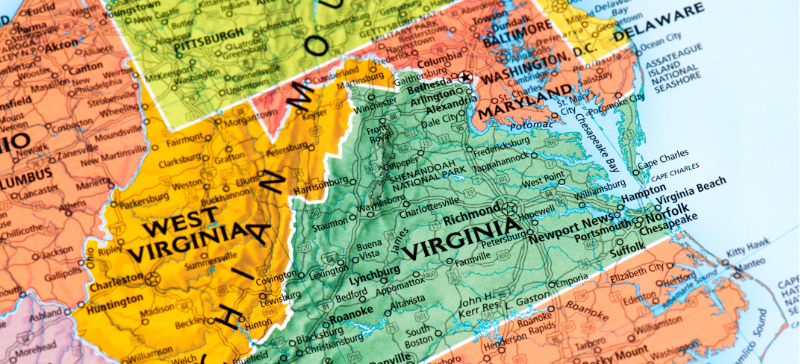The foodservice and restaurant industry stands as a linchpin in the economic landscapes of Virginia, Maryland, and Washington, D.C., shaping not only the culinary scene but also contributing significantly to economic vitality and job creation. We also gain a lot of enjoyment from restaurants, of course.
Let's start by considering some data from the National Restaurant Associate to gain a clearer perspective on how important the foodservice industry is to the economies of Virginia, Maryland, and greater Washington, D.C.
In Virginia, the restaurant industry stands as a cornerstone of the state's economy, with 17,257 eating and drinking establishments contributing to an estimated $24.4 billion in sales in 2022. Supporting a robust job market, the industry accounts for 366,300 restaurant and foodservice jobs, constituting 9% of the state's employment. Beyond its economic impact, the thriving restaurant sector plays a vital role in community development and career growth throughout Virginia. Notably, every additional dollar spent in the state's restaurants contributes $2.02 to the overall state economy, underscoring the industry's far-reaching significance in driving economic prosperity.
In Maryland, it's a similar story. The Maryland restaurant industry serves as a vital economic driver, boasting 11,313 eating and drinking establishments that contributed to an estimated $16.3 billion in sales in 2022. With 240,300 restaurant and foodservice jobs, constituting 9% of the state's employment, the industry significantly impacts job creation and career opportunities. Beyond employment, the thriving restaurant sector plays a crucial role in community development across Maryland. Notably, every additional dollar spent in the state's restaurants contributes $1.90 to the overall state economy, and each additional $1 million spent generates 14.7 jobs, underlining the industry's substantial economic influence and positive implications for the state.
And, finally, in Washington, D.C., the restaurant industry is a leading component of the economy. The District of Columbia's restaurant industry stands as a crucial economic force, boasting 2,513 eating and drinking establishments that contributed to an estimated $5.5 billion in sales in 2022. With 61,400 restaurant and foodservice jobs, constituting 8% of the district's employment, the industry significantly impacts job creation and career opportunities. Beyond employment, the thriving restaurant sector plays a crucial role in community development throughout the district. Every additional dollar spent in the district's restaurants contributes $1.31 to the local economy, and each additional $1 million spent generates 4.0 jobs. Looking ahead, projections indicate a 11.7% growth in jobs by 2030, totaling 68,600, underscoring the sustained and expanding impact of the restaurant industry on the District of Columbia's economy.
What Does This Mean for the Industry and Its Supporters?
If you look at the second pages of the individual state documents listed above, what you'll see is the restaurant industry is vital in both democratic and republican districts alike. Regardless of party lines, the foodservice industry in MAFSI Region 5 holds immense economic weight, representing upwards of 10% of a particular state's economy or a representative's region. As business owners and professionals, it's paramount to engage with our representatives on matters related to taxation and support.
The economic impact of the foodservice industry extends beyond the dining room. It permeates local communities, contributing to job creation and economic growth. By recognizing and advocating for our industry's value, we can collectively ensure that our representatives are informed about our vital role in the economic landscape.
Here at High Sabatino, our goal is to help unite industry professionals as a powerful force within MAFSI Region 5, transcending political differences to champion the economic value of the foodservice industry. By engaging with our representatives, we can foster an environment that supports and nurtures the growth of our businesses, ultimately benefiting the communities we serve.









